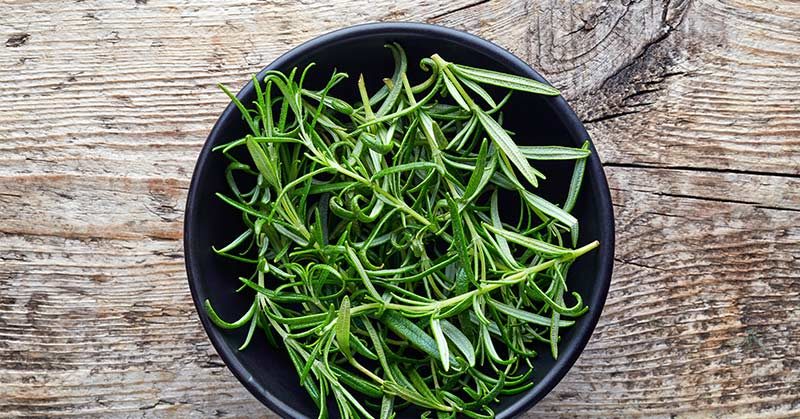When you think about rosemary, you may imagine those dried, spikey bits that you find in the spice aisle at your local grocery store. While not everyone loves the dried stuff, however, fresh rosemary makes a very aromatic and flavourful addition to many dishes and has been a popular herb in the kitchen for many years with many other uses.
Five Ways to Use Rosemary as Food
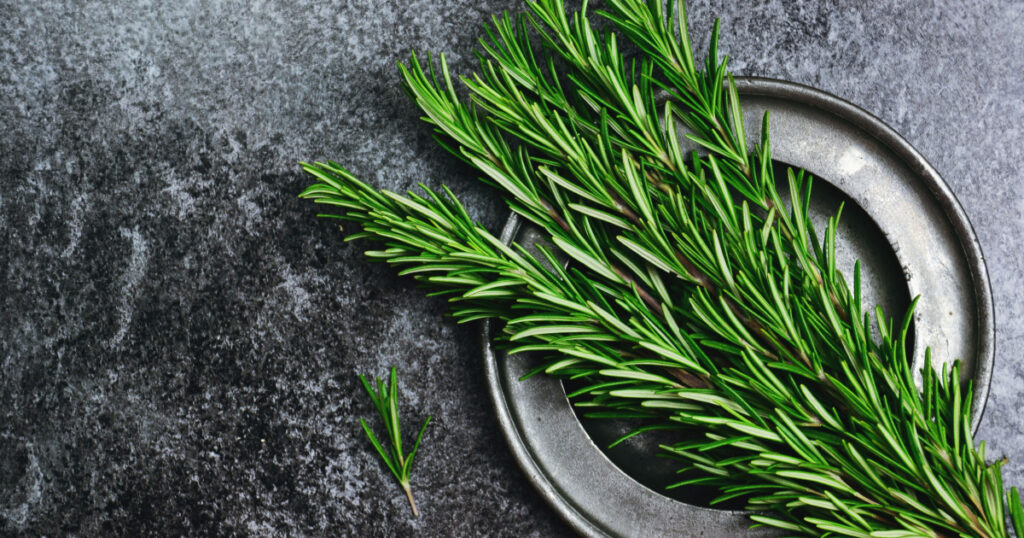
Read More: Rosemary: The Brain Boosting Herb
You may be familiar with rosemary on your potatoes, but what you might not know is that this delicious herb has a number of uses, not just in the kitchen, but in your medicine cabinet, your skincare routine, and in your home. Continue reading to learn unique ways that you can use this incredibly versatile herb.
In Vinegar and Oils
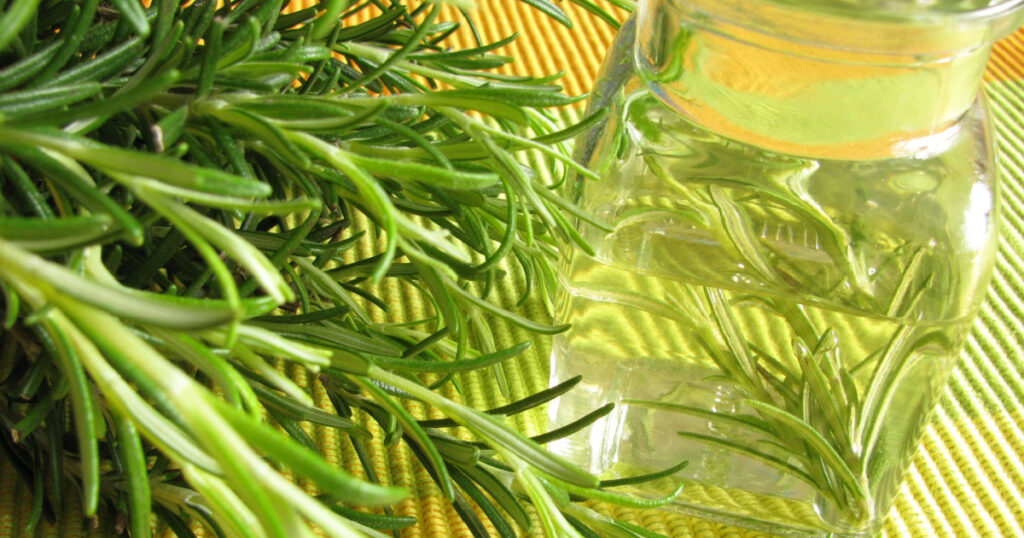
Making a vinegar or oil infusion with rosemary is a delicious and simple way to preserve the flavor of rosemary without the herb itself going bad. Both can be used in any recipe that requires oil or vinegar, and the oil can be used as a delicious dip for warm, crusty bread.
Sauces and Soups

Whole sprigs of rosemary can easily be tossed into any soup, stew, sauce, or marinade to add a punch of flavor. Rosemary pairs well with many other ingredients like citrus, butter, oil, balsamic, garlic, and pepper, and is especially good in heartier soups with root vegetables like potatoes, parsnips, sweet potatoes, and carrots.
Herb butter

Flavored butter can add a whole new dimension to your cooking, and makes a delicious alternative to regular butter on a warm piece of bread. What’s more, it’s easy to make! This recipe for garlic and rosemary butter is just one example of a delicious butter infusion.
Drinks

Rosemary can add a savory twist to some of your favorite drinks- alcoholic and non-alcoholic alike. Whether you’re trying to liven up your glass of water, or wanting to impress your guests with a unique cocktail, rosemary is a great addition to many beverages.
Dessert

Rosemary pairs very well with fruits and sweeter flavors, including lemon and apple, and can even be combined with dark chocolate for a surprising and elegant dessert.
Read More: 8 Plants To Help Repel Mice, Spiders, and other insects
Five Ways to Use Rosemary Medicinally
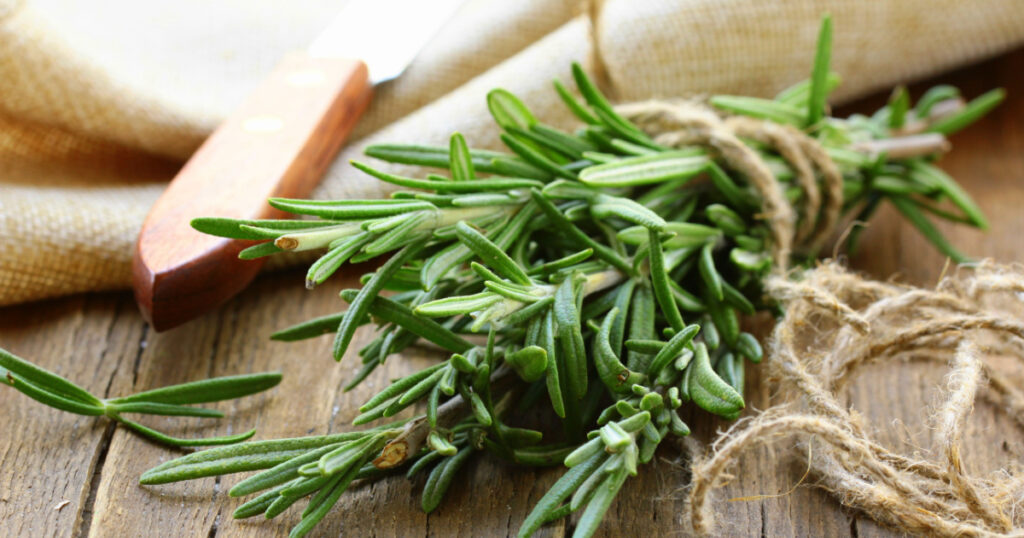
Beyond its culinary uses, rosemary (Rosmarinus officinalis) has been valued for ages for its medicinal benefits. Packed with antioxidants, it’s known to boost cognitive function, reduce stress, and aid digestion. Explore the simple yet potent ways rosemary can contribute to your well-being.
Relieve anxiety and stress
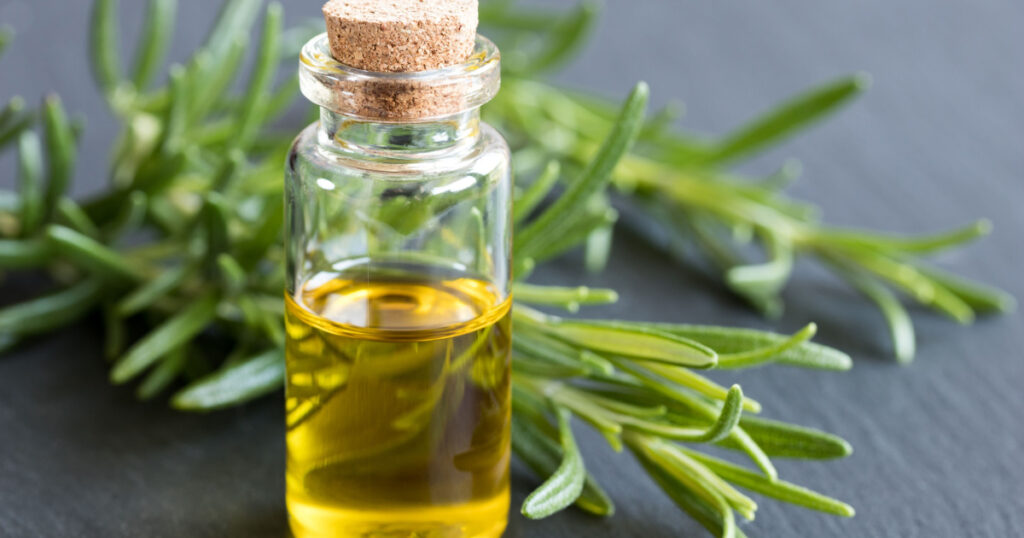
There have been some studies that have shown that inhaling rosemary oil decreases your pulse rate during stressful situations (like test writing). Since pulse rates reflect short-term stress, rosemary oil may help to reduce stress naturally [2]. In another study, participants who sniffed rosemary oil for five minutes had 23 percent lower levels of the stress hormone, cortisol, in their saliva than those who did not [3].
Improve brain function
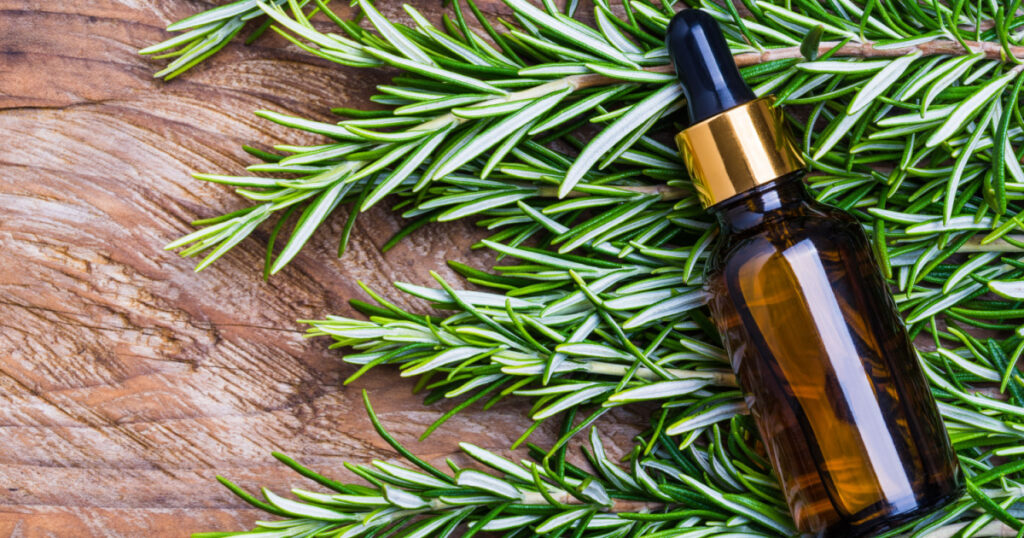
Although more research is needed to confirm this, there has been some research to show that inhaling rosemary oil helps prevent the breakdown of acetylcholine, which is a chemical in your brain that is important for thinking, concentration, and memory [4]. Additionally, there is some research to suggest that breathing rosemary oil may help improve brain function in patients with dementia or Alzheimer’s Disease [5].
High in antioxidants, antimicrobial, and anti-inflammatory compounds
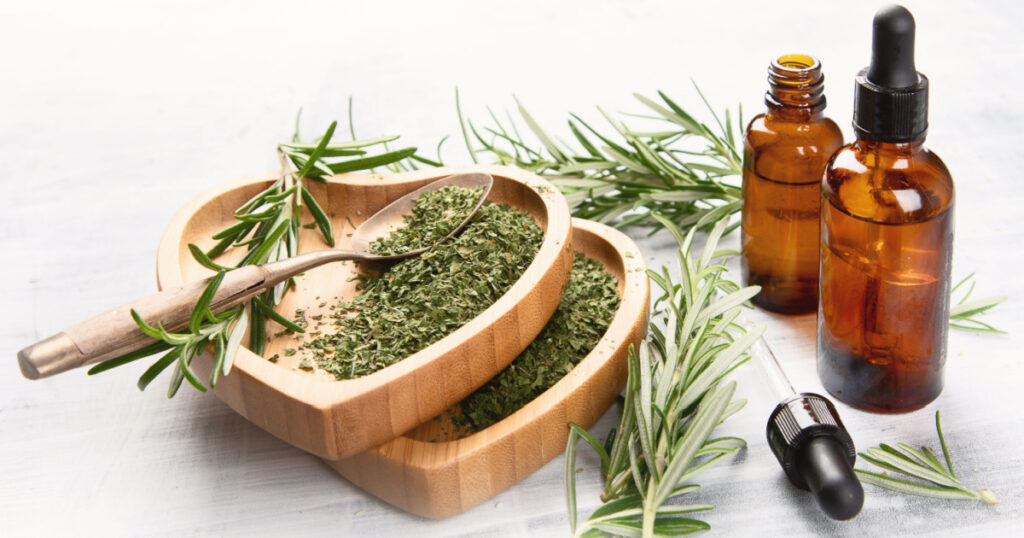
Rosemary tea contains rosmarinic acid and carnosic acid, which are polyphenolic compounds that demonstrate antioxidant and anti-inflammatory activity [6,7]. These compounds also have antimicrobial properties to help fight infections and have even shown the potential to slow the growth of cancerous tumors [8,9].
Pain relief

There has been one animal study to suggest that rosemary oil may be a slightly more effective pain reliever than acetaminophen [15]. Another study conducted on human stroke survivors with shoulder pain showed benefits as well. Participants experienced a 30 percent reduction in pain after combining rosemary aromatherapy with acupuncture. This was compared to 15 percent for those who only received acupuncture treatment only [10].
Reduce joint inflammation

More research is needed on rosemary’s impact on joint inflammation, but there is some early evidence to suggest that rosemary oil may help reduce tissue inflammation associated with pain and swelling by stemming the migration of white blood cells to injured tissues to release inflammatory chemicals [11]. This could be potentially beneficial for individuals who suffer from rheumatoid arthritis.
Read More: 10 Medicinal Plants Native Americans Used To Treat Everything
Three Ways Rosemary can be used on the Body
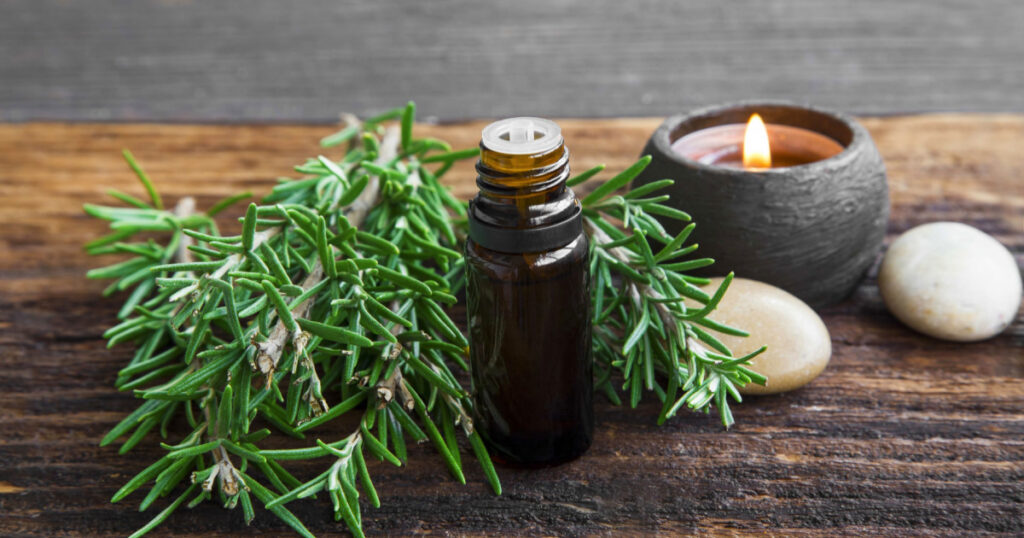
Embrace the refreshing touch of rosemary on your skin! From essential oils to lotions, discover how this herb can revitalize and invigorate your body naturally.
Stimulate hair growth

Rosemary oil can treat androgenetic alopecia (male-pattern baldness) by preventing a byproduct of testosterone from attacking hair follicles and massaging rosemary oil into the scalp twice daily has been shown to stimulate hair regrowth [12,16].
Increase circulation

If you struggle with Raynaud’s disease (which impairs circulation), or simply find you always have cold hands and feet, massaging a rosemary oil blend into your hands may help warm them up. It is possible that rosemary oil helps expand your blood vessels, which warms your blood so that it reaches your fingers and toes more easily, but more research is needed [13,17].
Fight acne

The antibacterial and antimicrobial properties of rosemary make it particularly beneficial in the treatment of many skin issues. Whole-plant rosemary extract has been shown to reduce the inflammation associated with acne, as well as fight bacteria that cause acne outbreaks.
Two Ways Rosemary Can Be Used in the Home
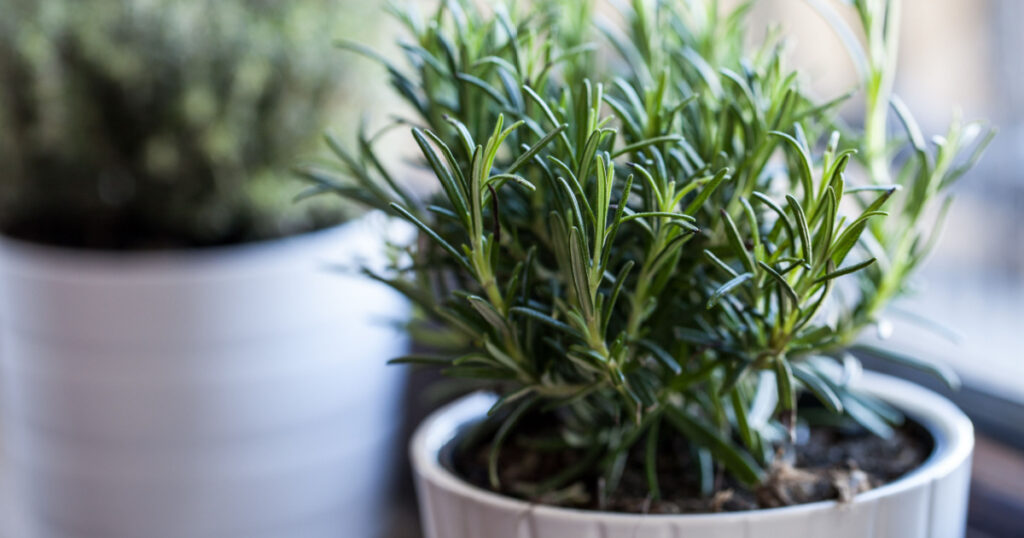
Transform your living space with the enchanting aroma and versatile charm of rosemary. Beyond the kitchen, rosemary finds a new role in your home.
Simmer pots
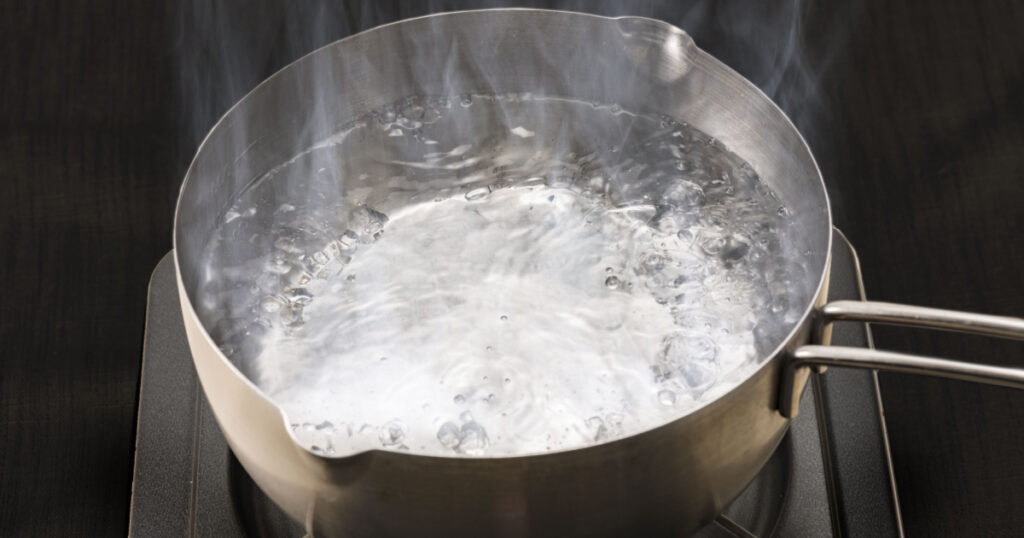
If you want to make your home smell amazing, a simple simmer pot is an easy, chemical-free way to do so. All you have to do is fill a pot with water, add your favorite aromatics, and let it simmer gently on the stovetop, adding more water as it gradually evaporates. Rosemary, sliced oranges, cranberries, and cinnamon will give your home a holiday-inspired scent, while a simple lemon and rosemary pot will just make your home smell bright and fresh [1].
Pest control

Rosemary acts as a deterrent for many pests and insects. You can place sprigs of rosemary by your doors and windows to prevent them from entering your home or use a spray of ten drops of rosemary oil mixed with one cup of water. Rosemary can also be a deterrent for mice, and some suggest placing a few sprigs in the back of your cupboards, where mice typically like to hide [1].
An All-Natural, Multi-Purpose Herb

While many of the benefits of rosemary require more study, it is generally considered safe to use and has very few side effects. Remember when using rosemary extract or oil that it is highly concentrated, so you only need a few drops. Rosemary essential oil should not be used internally, and should typically be diluted in a solution or carrier oil when applying to the skin. As always, check with your doctor before adding anything new to your health regime, and if you notice any negative side effects, discontinue use right away.
Read More: What Was Silphium? The Lost ‘Wonder Drug’ of the Romans
Disclaimer: This information is not intended to be a substitute for professional medical advice, diagnosis or treatment and is for information only. Always seek the advice of your physician or another qualified health provider with any questions about your medical condition and/or current medication. Do not disregard professional medical advice or delay seeking advice or treatment because of something you have read here.
Sources
- https://pubmed.ncbi.nlm.nih.gov/19258850/
- https://pubmed.ncbi.nlm.nih.gov/17291597/
- https://pubmed.ncbi.nlm.nih.gov/23983963/
- https://pubmed.ncbi.nlm.nih.gov/20377818/
- https://www.ncbi.nlm.nih.gov/pmc/articles/PMC4227022/
- https://www.ncbi.nlm.nih.gov/pmc/articles/PMC5664485/
- https://www.ncbi.nlm.nih.gov/pmc/articles/PMC5905578/
- https://pubmed.ncbi.nlm.nih.gov/17827696/
- https://pubmed.ncbi.nlm.nih.gov/17388768/
- https://pubmed.ncbi.nlm.nih.gov/21663474/
- https://pubmed.ncbi.nlm.nih.gov/22517595/
- https://pubmed.ncbi.nlm.nih.gov/12564637/
